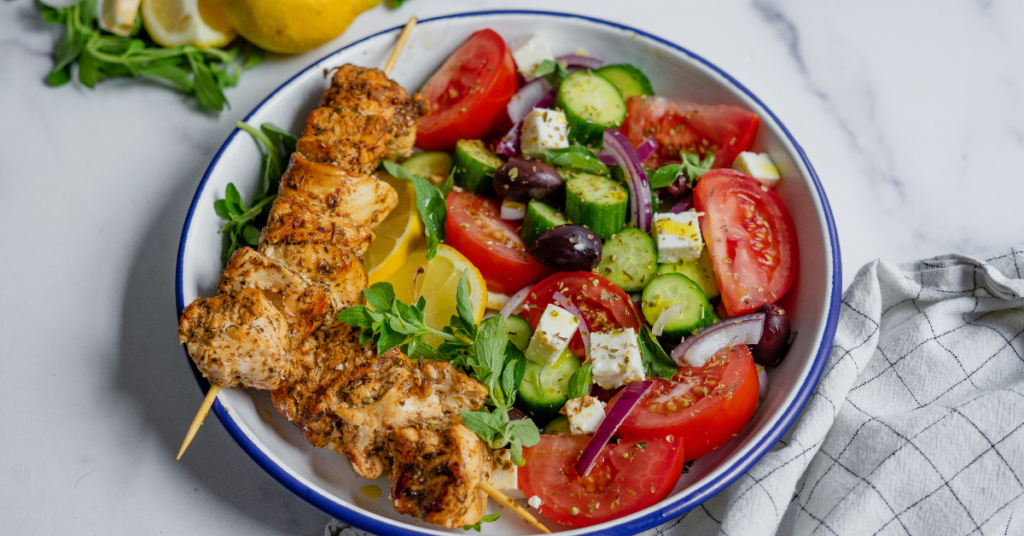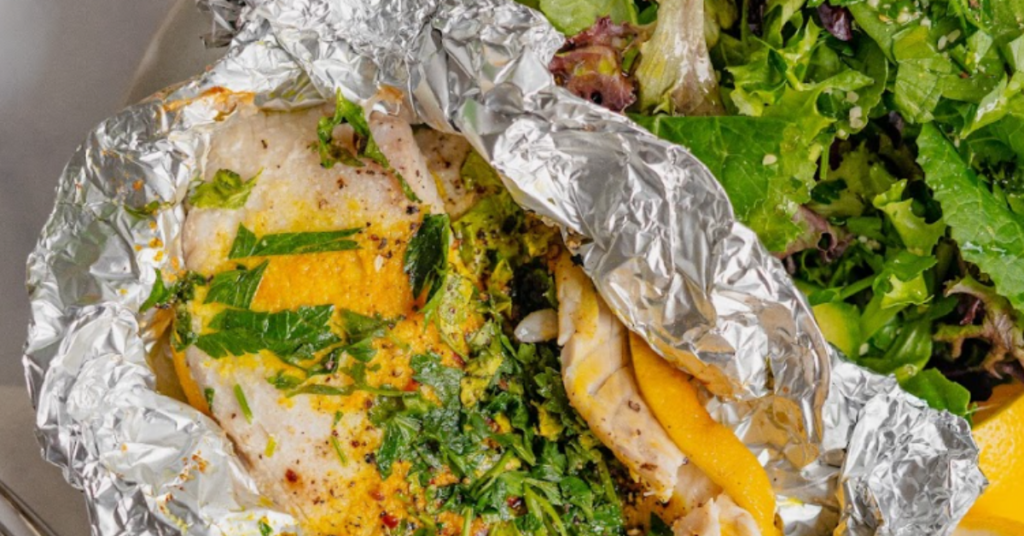It’s no secret that most of our lives look dramatically different than they did just a few short months ago. Living in the time of COVID-19 has brought about it’s fair share of new and unique challenges that are impacting all of us in different ways. But one of the greatest commonalities that we’re all dealing with is the increased levels of stress that most of us tend to feel.
This was a topic that we talked about on the blog just a few weeks ago, and in the brief period of time, since that blog came out, it’s safe to say that most of us haven’t seen much of a change in the stress we’re feeling on a daily basis. The effects of COVID-19 are far-flung, and they’re impacting us in different ways depending on where we live.
You might be in a state or city that is slowly experimenting with opening businesses back up and trying to return to a sense of normalcy. And if, you might also feel stress and anxiety about the aftermath of that experiment. Whereas for others, opening up isn’t quite in the cards yet, so it might feel like it’s hard to see the light at the end of the tunnel.
But the common thread in all of those situations? You guessed it. Stress.
This is something we recognize and see first-hand here at Stronger U. As coaches who are here to help you live a healthier life, we know the role that stress can play in that pursuit. We see the various ways that stress impacts individuals, and we also see the different sources of stress that members deal with. Which is why a couple of weeks ago we were fortunate to be led through an edition of the Stronger U Journal Club, one of our favorite internal education initiatives. The topic? None other than stress.
Dr. Jessica Bachman and Berit Young, one of our Registered Dietitians, led our coaches through one of the deepest dives into stress, stress management, and how things like quarantine can impact our stress levels.
Here are some of the things we learned:
We started this Journal Club off by reviewing this paper, which gave an academic overview of stress, the different types of stress we encounter, and how that stress can impact our weight. But like any good academic pursuit, we didn’t stop at just that paper. Dr. Jessica Bachman also found a research article that specifically talked about stress during times of quarantine, which is especially applicable to so many of us at this present time.
Some background information:
As we were all going through this, Jess put together this fascinating slide that highlighted stress in America, based upon reports from the American Psychological Association. Something that we all found to be particularly interesting was that while stress levels themselves do not seem to have changed much in recent years, it is very clear that the vast majority of us deal with stress on a nearly daily basis. What also hasn’t changed is both the ways that we feel that stress (anxiety, depression, sadness, fatigue, and irritability) and that the sources of that stress we feel tend to stay roughly the same. In other words, most of us have always felt stress because of money, work, the economy, our family responsibilities, and our own personal health concerns.
Now, what is important to understand is that this data comes from the APA’s report that they issued in August of 2019. Or, at a time when COVID-19 wasn’t on any of our radars. Now things have changed, and most of us are living in some form of isolation. So how does that isolation, in response to a global pandemic, impact the stress that we feel?
Dr. Bachman found a great article in the Lancet that asked this very question.
This review looked at 24 papers that had been published on the psychological effects of quarantine, which is a slightly different circumstance than the stay-at-home orders that most of us have been under. But while there might be differences in what those terms mean, from a practical standpoint, the takeaways are still very applicable. So what did the researchers find?
Most common psychological impacts
- Acute stress disorders
- Exhaustion
- Detachment from others
- Irritability,
- Insomnia
- Poor concentration
- Deteriorating work performance
- PTSD
- Depression
- Anger
- Fear
- Nervousness, sadness, numbness
- Some short-term others lasted up until years later
Most common stressors during quarantine
- Duration of the quarantine
- Fears of infection
- Frustration and boredom
- Inadequate supplies
- Inadequate information
Most common stressors after quarantine
- Finances
- Stigma
The stigma point is especially fascinating and one that we might not be considering fully as we all navigate our way through this pandemic. For those who have contracted COVID-19 and been fortunate enough to make a full recovery, the idea that they might carry a stigma because of their diagnosis is a very real stressor that they might deal with.
But now that we know some of the stress-causing effects of living under quarantine, what did researchers provide as ways to try and mitigate the consequences of stress during that time? In this review paper, they listed the following:
- Keep it as short as possible
- Give people as much information as possible
- Provide adequate supplies
- Reduce boredom and improve communication
- Give health-care workers special attention
- Focus on altruism – reinforce that quarantine is helping to keep others safe
So what exactly is stress?
We’ve talked a lot about stress and how it can impact our life. But knowing where stress comes from or how it might manifest in our own lives during uncertain times doesn’t exactly explain what stress actually is.
In short, stress is a generalized, nonspecific response of the body to any factor that overwhelms, or threatens to overwhelm, the body’s compensatory ability to maintain homeostasis. Put another way, it’s an automatic response that we have evolved to have as a way to protect us from threats. That automatic response brings about a cascade of internal changes that we have no control over, including: flooding the body with hormones, increased heart rate, and elevated blood pressure. All of which can lead to us feeling a short-term spike in energy.
But here’s where things get tricky:
Stress doesn’t just come from immediate threats. The stress we feel from an immediate threat is acute stress. From an evolutionary point of view, it’d be the stress that we felt if we were roaming the plains and came across a lion that thought we looked like dinner. That acute stressor would be felt hard and fast and would drive us to get to safety. On the other side of the coin though we have chronic stress, or the stress that we feel on a daily basis thanks to a multitude of factors.
These types of stressors impact our bodies in different ways and lead to different physiological responses. For the nerdy folks at home that love learning about the internal workings of the human body, you might enjoy this slide:
(On the left, we see the hormonal response that is in line with an acute stress response. On the right, we see the response that follows chronic stress.)
If you look at the bottom right green box under Aldosterone, you’ll see a tiny little line that mentions the “absorption of fluids = weight gain”. This one is particularly important for us to touch on right now, as so many of us are dealing with chronic stress and also seeing that our weight might register a couple of pounds higher than we’re used to. This can lead to confusion, frustration, and wondering why we’re not seeing the changes we’re looking for. Taking actual food intake out of the equation, the chronic stress response that leads to greater fluid absorption just might answer the question as to why the scale is registering a higher number.
But just because we know the internal processes with how the body handles different types of stress doesn’t cover all of the ways in which we feel the impacts of stress. For that, we turn to this wonderful graphic that The American Institute of Stress put together:
It’s important to note that this graphic speaks to the prolonged effects of chronic stress. These are the things that show up thanks to chronically elevated levels of cortisol, which is a normal physiological response to chronic stress. But as we see in the image above, those chronically elevated stress levels have the ability to impact nearly every facet of our lives.
But what about stress and weight gain?
By now we should have a decent grasp on the differences between acute and chronic stress. But how do those different types of stress impact our appetite and weight? Here’s a simple breakdown:
Acute stress = minimized hunger
Chronic stress = increased hunger
While the internal processes that lead to those changes in appetite might be complicated, the effects that we feel are relatively simple. When we’re running away from a lion that wants to eat us, we’re not hungry. That’s thanks to the acute stress response of a hormonal cascade and a moving of blood away from the digestive tract, so that we can hopefully run to safety. Whereas when we’re dealing with chronic stress, the effects that we feel show up quite a bit differently.
Thanks to our bodies producing the stress hormone cortisol at increased levels, that winds up leading to an increased appetite over time, reduces our ability to control our inhibitions around food, and activates the brain’s reward system. Or, in other words, we’re now much more conditioned to seek out food in response to the chronic stress we’re feeling.
Research supports this idea. As Berit was presenting, she mentioned multiple studies that showed some of the following findings:
- 33% of American report eating too much and/or unhealthy food in response to stress
- Stress eaters tend to eat more higher fat/higher sweet foods compared to non- stress eaters; even when the amount of food is the same.
That last finding is one particularly interesting, and one that many of us can probably relate to. When we’re dealing with chronic stress, the foods that we turn to inevitably are more palatable foods that tend to be higher in carbs and fats. While research isn’t entirely clear on why this is yet, these same findings have been seen in humans and animals alike. So even if the mechanism behind it isn’t known, what is known is that when we feel stressed we’re much more likely to snack on calorie-dense foods. The same foods that light up the reward centers of our brain like a slot machine and come in notoriously-hard-to-control portions.
The perfect (stress) storm.
Remember that early 2000’s movie The Perfect Storm with George Clooney and Mark Wahlberg? They’re commercial fishermen who head out on one last expedition and wind up getting caught in the middle of a perfect storm, which ultimately brings about a gigantic rogue wave that they try to pilot their boat over, almost like a big wave surfer.
Not to be dramatic, but stress (especially chronic stress) and its effects tend to act as a kind of perfect storm in our dieting lives. The physiological effects of stress are far-reaching and impact our bodies in ways that we’re not always conscious of. Those effects can range anywhere from seeing residual and unexplainable weight gain to the desire to eat higher calorie snack foods and a much greater struggle to rein in our desire to keep going back to that snack cabinet. For anyone that’s focused on seeing success with their diet, all of this can leave you feeling like you’re caught in the middle of a gigantic, stress-induced, rogue wave.
So how can we handle that stress?
Managing stress and it’s impacts in our lives is a highly individualized process. Even in normal times, the sources of the stress that we feel might be completely different than the sources of stress that our neighbor feels. But despite the individual differences in where our stress comes from and the ways that it shows up in our lives, research does have a few suggestions on how you can handle that stress.
The American Institute of Stress recommends:
- Focus on gratitude
-
-
- Even during the most difficult times, finding things that you can be thankful for can be a helpful way to shift your focus and recalibrate your relationship with the stress that you’re feeling.
-
- Turn off the news and social media
-
-
- Need we say more? Just be sure you still pop into the Stronger U Community every now and then 🙂
-
- Schedule time to worry
-
-
- Sometimes placing a start and stop date on your worrying can be a helpful way to give yourself a bit more control over that worrying. When you know that you have specific time set aside to worry about the things in your life, it just might make it easier to leave those worries behind during the rest of the day.
-
- Practice the pause
-
-
- Feeling stressed and want to tear into a bag of Doritos? Take a moment to pause, breathe, and ground yourself.
-
- Focus on what you can control
-
- From the Stoic philosophers to Cognitive Behavioral Therapy of today, focusing on the very things you can control has been a long-held practice in managing stress. This isn’t to say that you should try to control ever aspect of your life and all the events that take place in it. That’s an exercise in futility. You can’t control everything that happens to you. But you can always control your reaction.
When it comes to managing our stress, we don’t have to stop there though. Other great tips that we can try to implement in our lives include things like:
- Finding non-food activities that we can use to replace stress eating.
- Placing more of an emphasis on mindful eating.
- This can look anything like eating with no distractions like your phone or TV or setting a timer for 20 minutes with the goal of taking that full 20 minutes to enjoy your meal. No matter what it is, get in touch with the experience of eating. Enjoy the texture, take in the aroma. Remember that eating, in itself, is a source of joy. Use it as such.
- Identify calming activities
- This strategy is in line with the first one in this list, and many of the answers can apply to both. Take a walk, and do so without any technology. Go spend time in nature. Read a book. Take a bath. Play a board game with your family. The options are endless because whatever you find to be a calming activity is something that can work here.
In closing.
Stress is a regular aspect of all of our lives. It’s something that we’re all dealing with at one point or another, and for most of us, it’s something that we’re dealing with on a daily basis. And while it can be easy to succumb to the stress that we’re feeling, the first major step in improving our relationship with the stress we feel is understanding more about it and it’s root causes. Don’t be afraid to get curious about where your stress comes from. Simple strategies like talking to a friend or journaling about your stress can be helpful ways to uncover more about those sources of stress.
Understand that when you’re dealing with chronic stress, you’re not alone. Especially right now. We’re all learning how to navigate this new normal, and part of that learning process is falling down every now and then. You might have snacked a bit more than you would’ve liked over the past 4 weeks. That’s okay. That doesn’t have to be what your future looks like. You can still get back up and get curious about your own stress and stress-related behaviors. Look inwardly and remember that you can’t control everything, but you can control your reaction. It just takes a little time, patience, and a willingness to keep trying.









